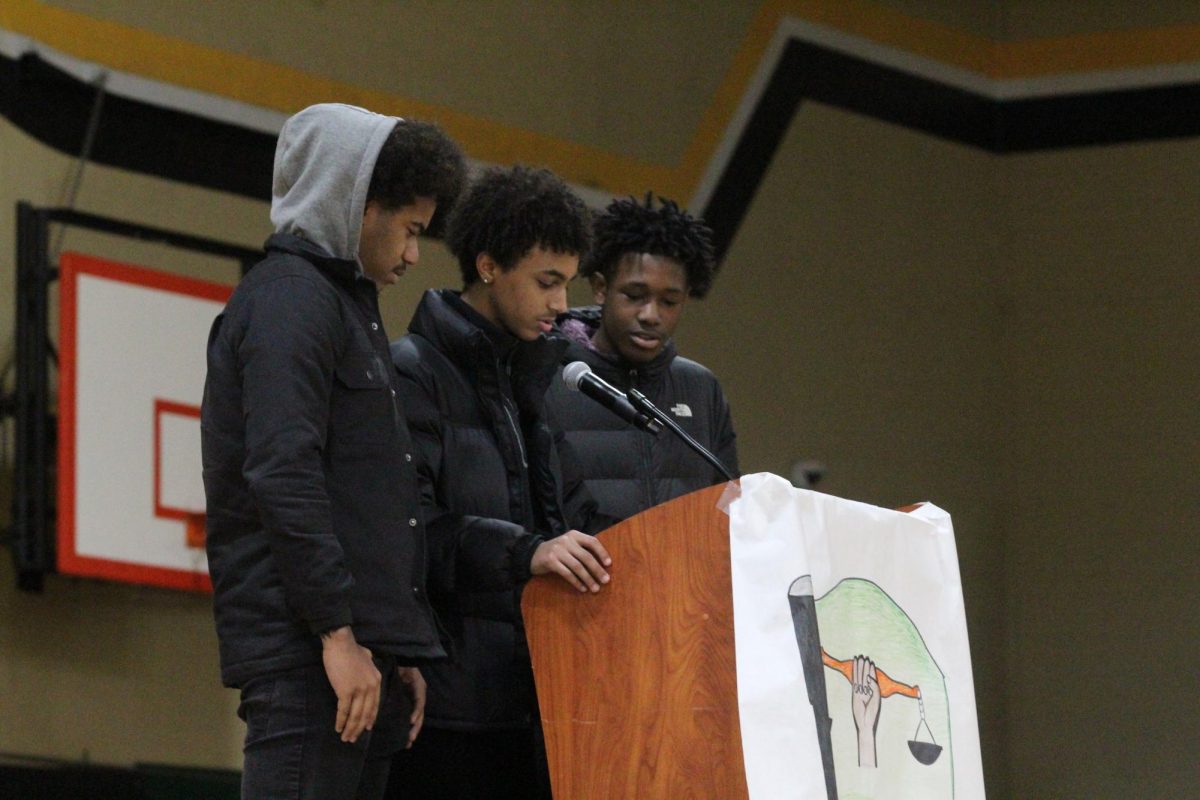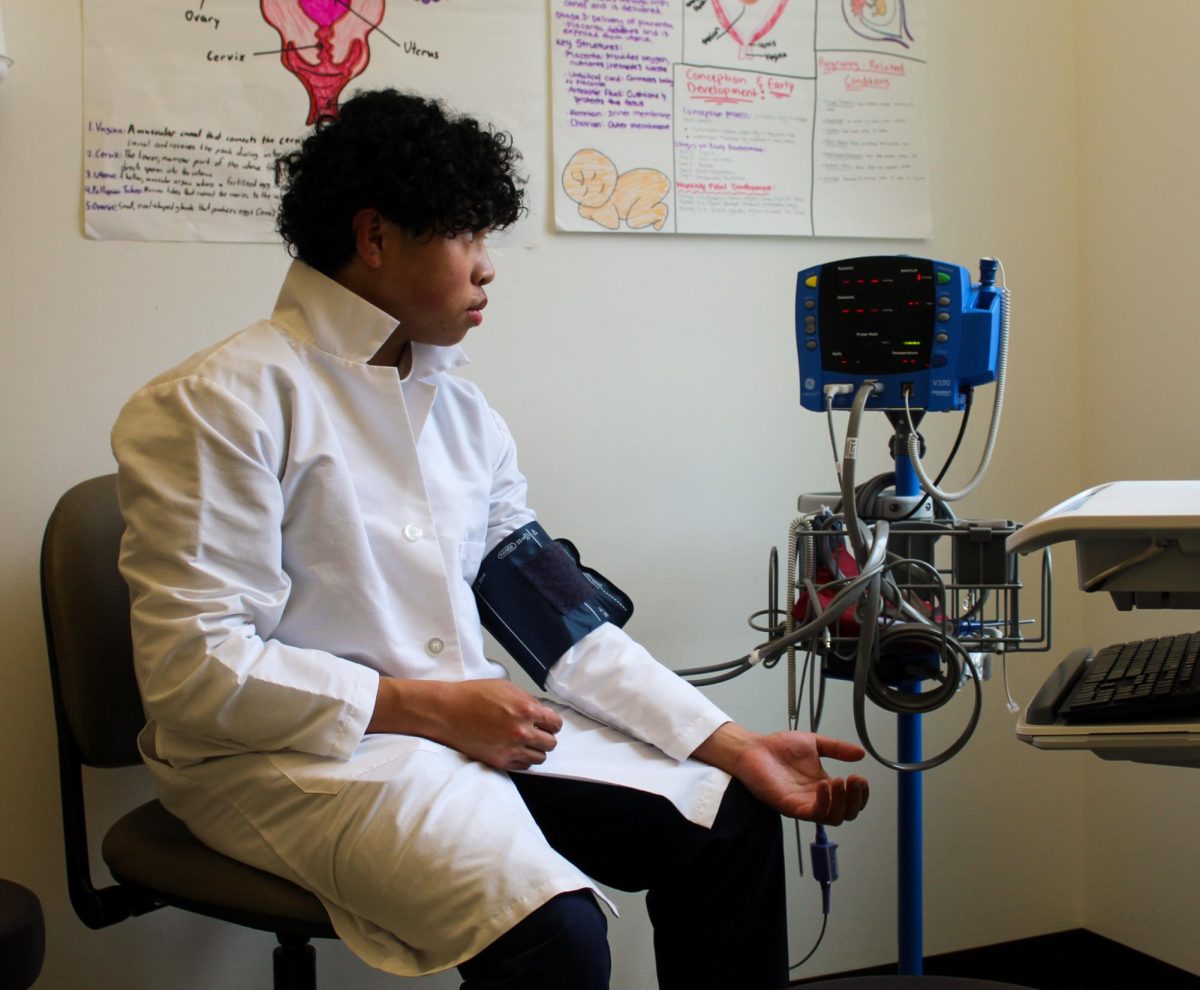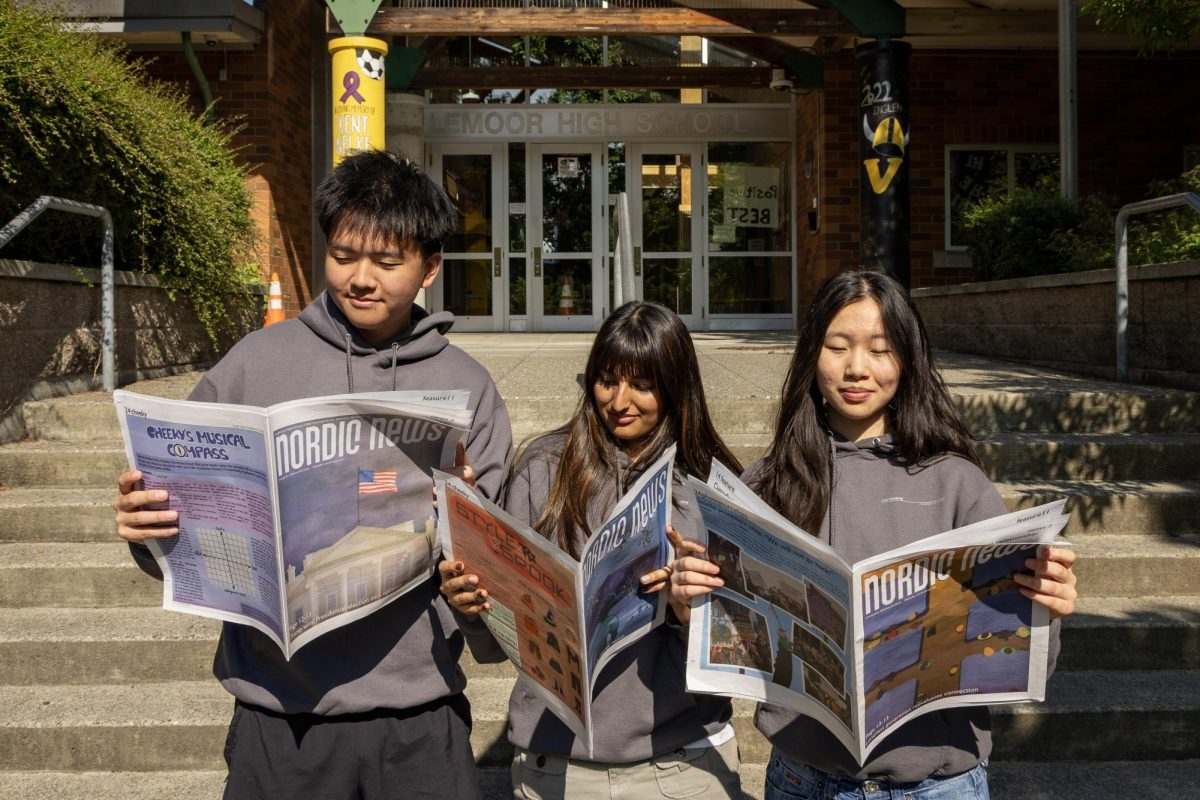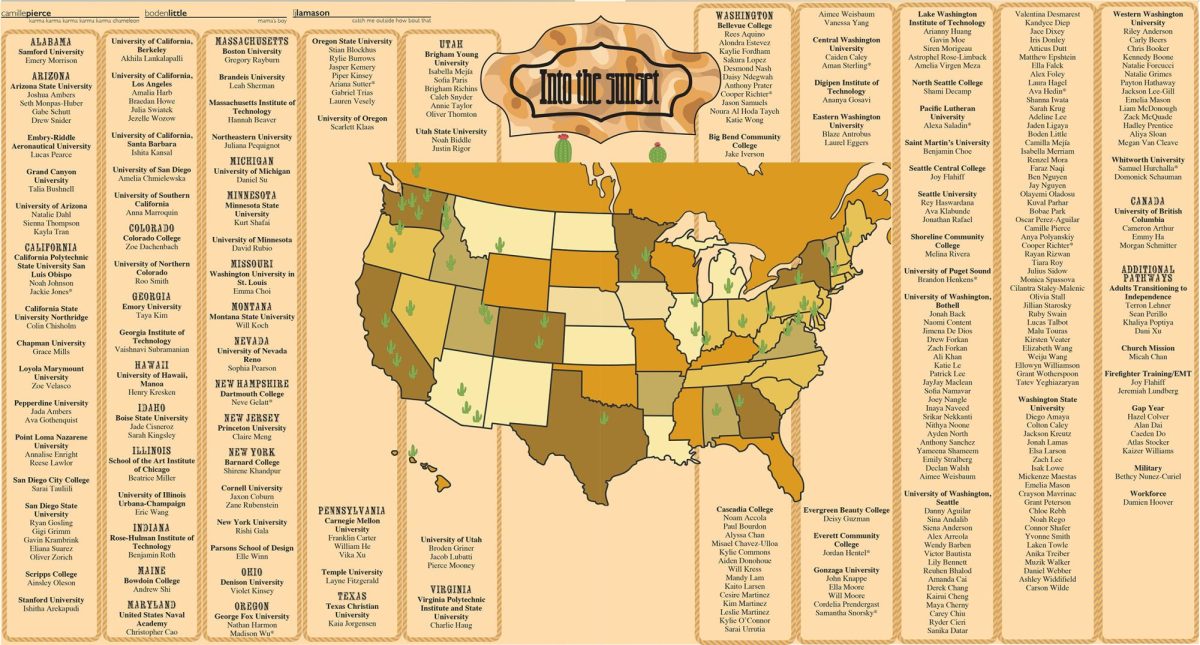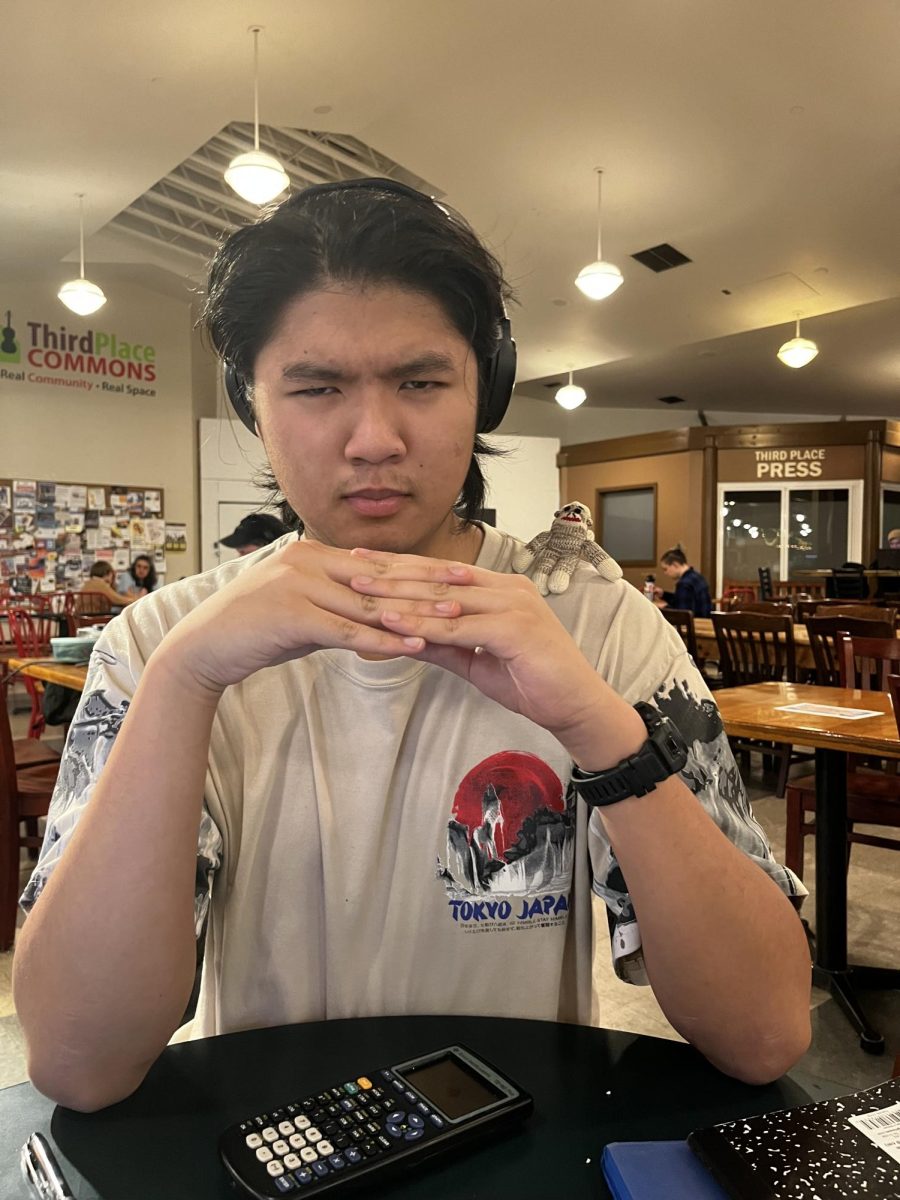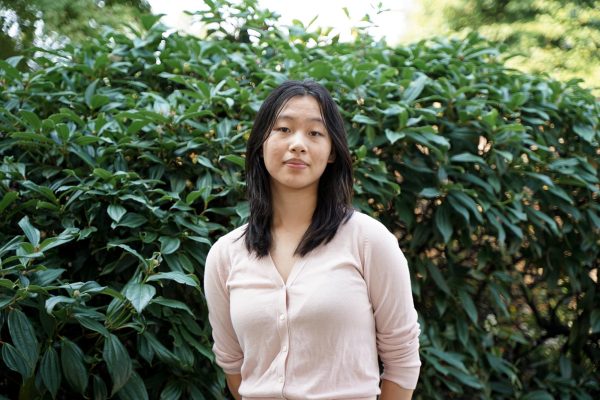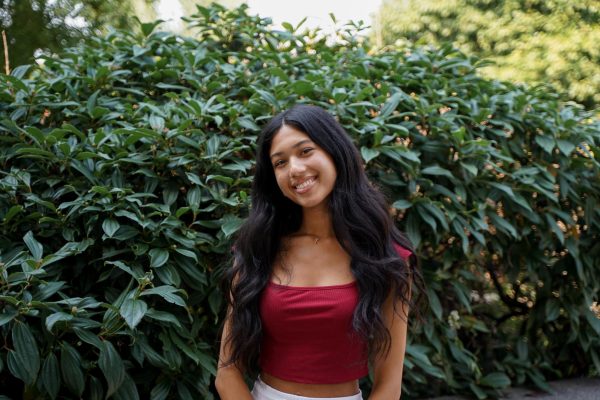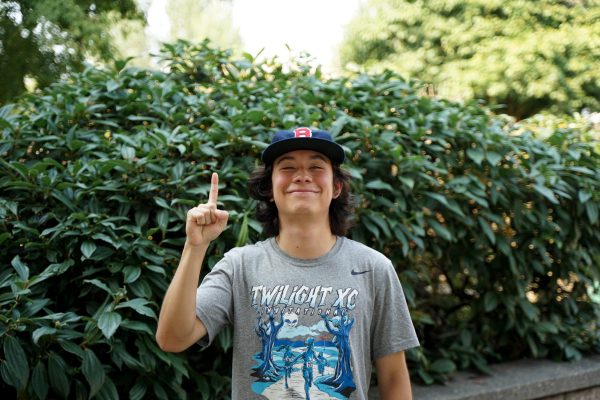Every year, February is dedicated to acknowledging and honoring Black history. At the Martin Luther King Jr. assembly on Jan. 10th, Black Student Union officers gave speeches about Black history and their experience at a predominantly white school. They plan for this event during their BSU meetings. With Black students consisting of only 2% of Inglemoor’s population, BSU offers a rare chance for Black students to meet, discuss current events and share Black culture.
BSU meets every Thursday in English teacher Omar Omar’s room. President and senior Lillie Tsegay (she/her) said that the club has been a really important part of her high school experience, given the small Black population here.
“I struggled my sophomore year back in person without having a Black community. So when I joined BSU, I finally was able to talk about stuff that wasn’t normalized to talk about,” Tsegay said. “I was able to talk about my own current situations at school, friendships, anything I needed to, and it just gives me a community of Black students where I’m able to just hang out with them and talk about Black culture — anything that comes to our mind — [and] current issues.”
BSU gives Black students a chance to discuss the struggles and discrimination they face. Tsegay said she experiences racism and microaggressions frequently at school.
“If you compare a Black student getting in trouble to a white student, the Black student will have more threats on their future at this school, and I’ve literally seen it all the time. Or issues that we get bullied or called the n-word or used as a token Black friend or Black student,” Tsegay said. “The microaggressions here are unreal, like patting my head or patting my hair, making jokes. Everything’s seen as a joke here.”
BSU treasurer and junior Jade Cisneroz (she/her) said that racism is very normalized at Inglemoor.
“It’s so normalized that people just be racist, and it’s fine. Like all my white friends can just throw around the n-word,” Cisneroz said.
Cisneroz said that she’s gotten used to racism at school, to the point where she’s desensitized to it.
“I feel like that’s a problem that I’m just not offended by it anymore,” Cisneroz said. “At this point, if you’re not insulting me, I’m not playing. I have to choose my battles, you know what I mean?”
Freshman Deion Komekotto (he/him) says that he experiences racism so often that standing up to it seems pointless.
“If you did something every time someone said [the ‘n-word’], you’d be cooked – every day you’d be in trouble,” Komekotto said.
On the other hand, senior Rowen Bennett (she/her) said that she hasn’t generally experienced racial discrimination before. However, Bennett wonders if people think she doesn’t belong based on stereotypical ideas.
“I wonder if other people think that I’m less than them,” Bennett said.
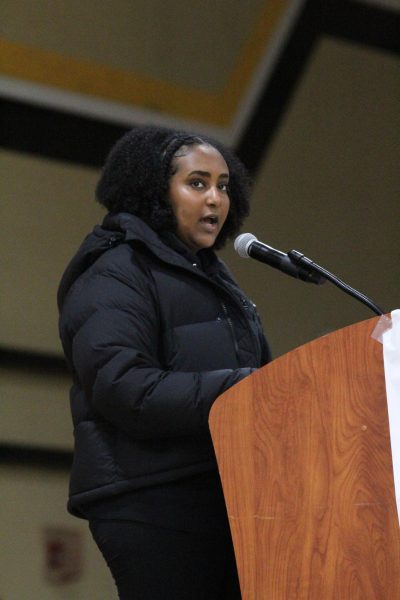
Stereotypes are a big part of the racism Black students deal with. Freshman Jayden Khoda (he/him) said that people have associated him with African American foods and called him famous Black people’s names, with a racist play on them. Komekotto said he’s been called names that have to do with slavery. Cisneroz’s advice for dealing with these stereotypes is to move on.
“You can’t let everything almost get to you. It’s also a good aspect in life; if you don’t get a job you want, you can’t just go ham on everyone. Like, just move on, work harder,” Cisneroz said.
Bennett said there’s a lot more diversity at Inglemoor than there was at Northshore Middle School, where she was only one of three Black students in her school. She said she enjoys the culture being Black allows her to have.
“It’s kind of like an unspoken community that you’re a part of which is really nice,” Bennett said. “In some other communities, you kind of have to gain community, but having culture, just being accepted for who you are, you’re already part of the family.”
Attending a predominantly white school can cause Black students to feel self conscious enough to want to change their appearance. Cisneroz said that because of this, some Black students resort to straightening their curly hair, but she encourages Black students to embrace it.
“Don’t try to make yourself white, like straightening your hair. Everyone always asks me ‘what do I do’ and everything and I’m like ‘embrace your curls.’ I hate when I see girls with beautiful curly hair — or even I’ve seen my white friends — will straighten their hair,” Cisneroz said.
Tsegay said she refused to wear her natural hair in middle school because she wanted to fit in. She said she didn’t really embrace her culture or ethnicity until high school.
“During COVID, I took it as a goal to not straighten my hair, so I didn’t straighten my hair for two years and just kept it curly,” Tsegay said. “Social media was a big part of it. Being able to see other students or other Black people struggling with the same thing and being able to talk about things — see other people that look like you in a place where the majority of them don’t.”
Khoda said that seeing Black people represented in the school curriculum would make students feel more comfortable. Cisneroz believes that Black History Month is important because it highlights the struggles Black people are forced to face. She said she feels like people here often put Black history in the back of their minds.
“For example, like your closet, you’ll have clothes in the back that you don’t think about but you like and then you’ll see it and be like, ‘Oh my God, why don’t I wear that?’” Cisneroz said. “It’s like same thing with this. Like you’re only seeing what they want you to see. So when you find out, you’re like, ‘Why don’t they teach us that?’”
Khoda said Black history reminds people of the progress Black people have made in the ongoing fight against racial injustice. He said it serves as a constant source of inspiration and highlights the resilience and invaluable contributions of Black people throughout history.
“Black history is a catalyst for empowering and motivating individuals in their pursuit of equality and justice,” Khoda said. “Ultimately, Black history empowers and propels black individuals to persist in their unwavering quest for equality and justice.”



